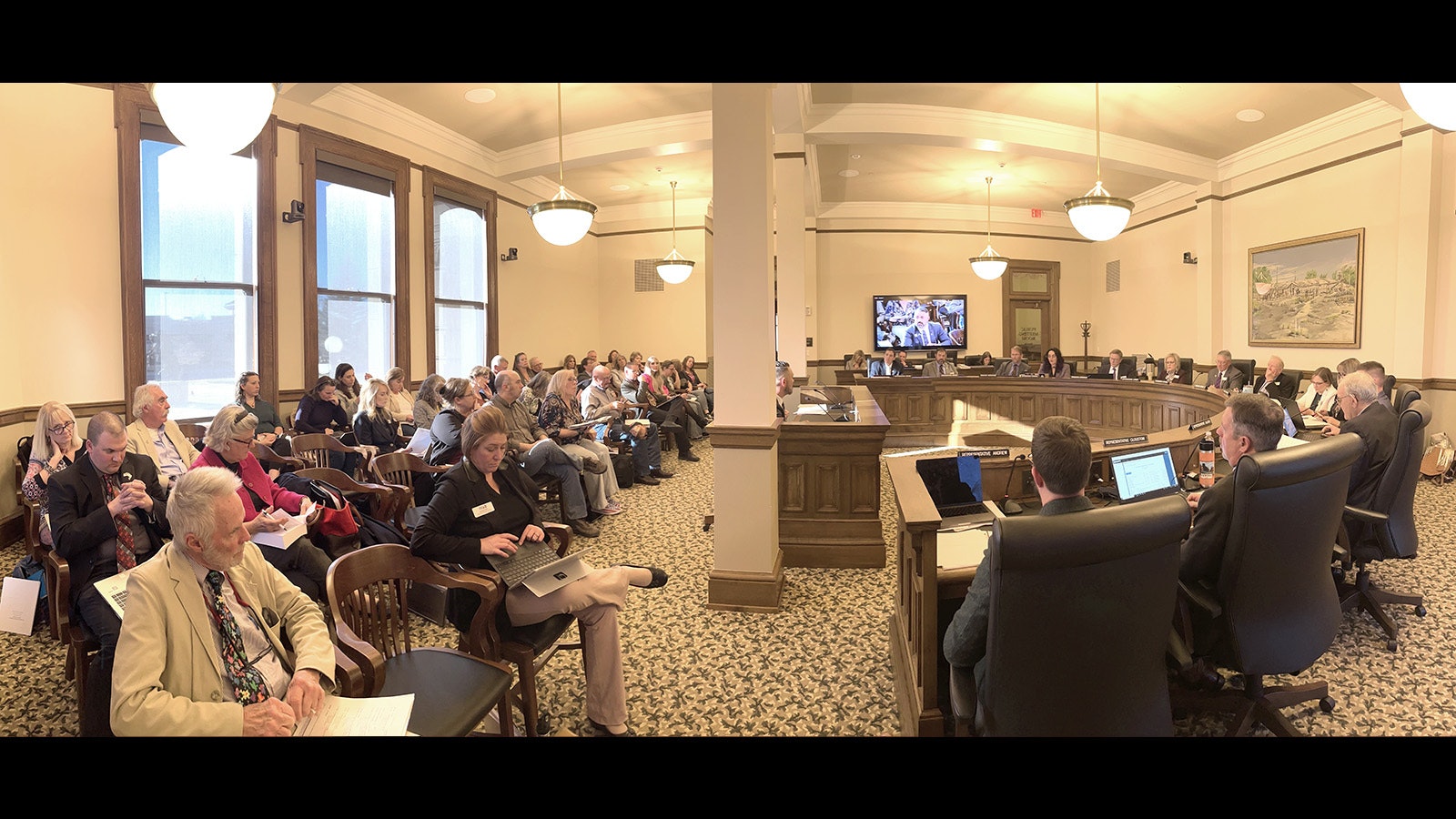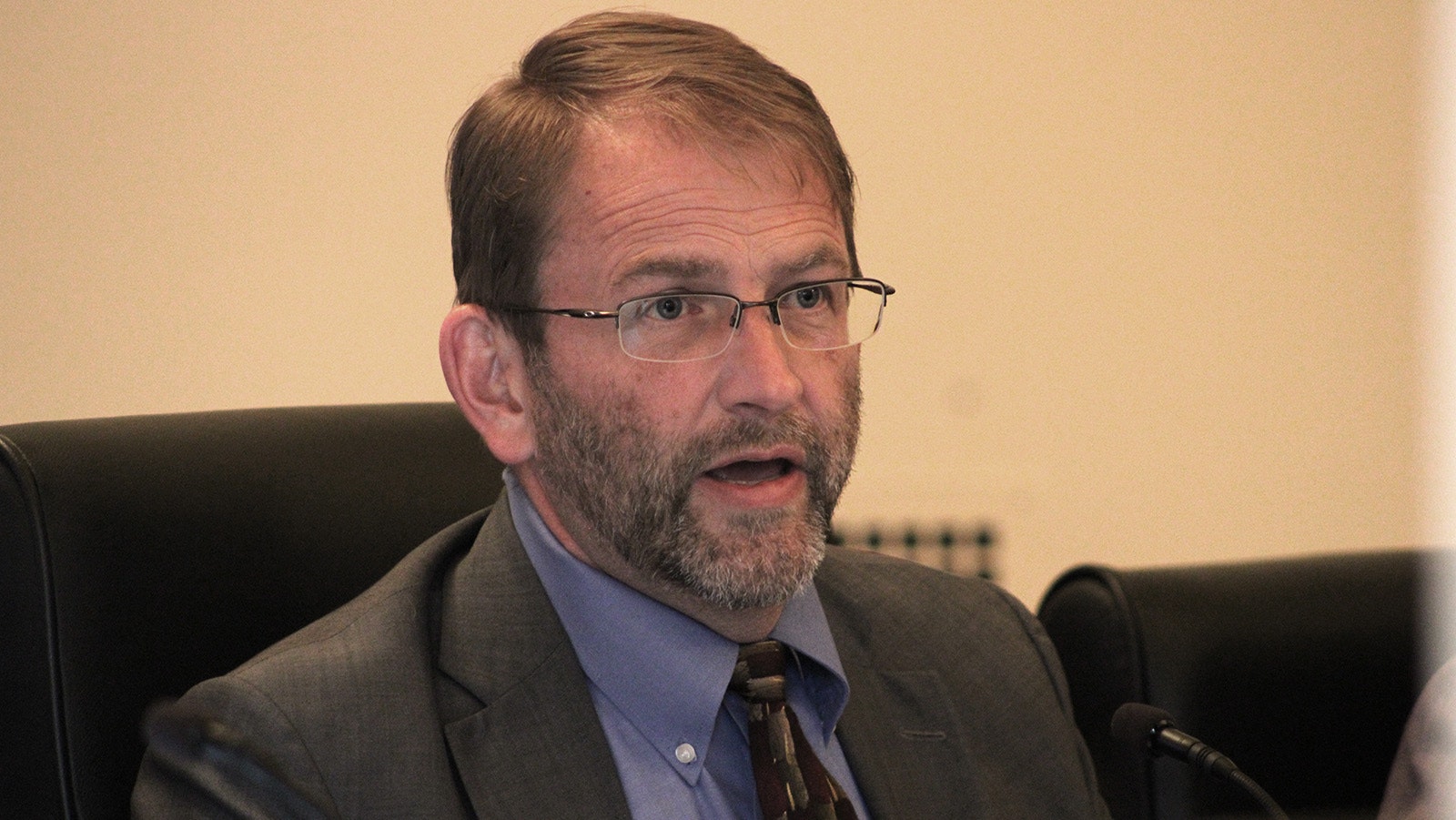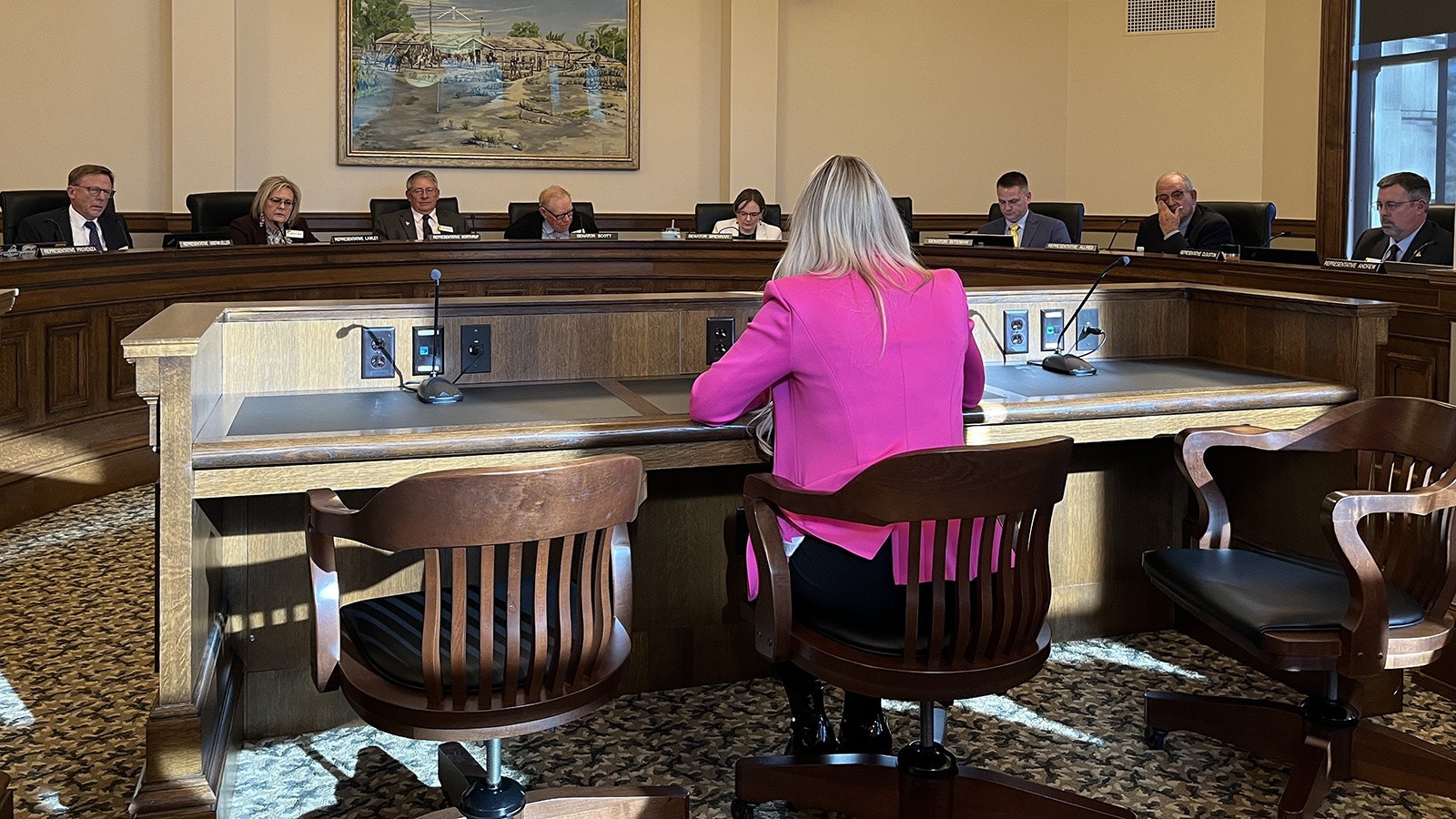CHEYENNE — Wyoming public schools will have to notify parents about changes to the health status of their children, including help in gender-transitioning, under a draft bill passed by a state legislative committee Tuesday evening.
The state Joint Education Committee advanced draft legislation to the 2024 session of the Wyoming Legislature that, if passed, would put more stringent laws for when parents are to be notified of changes made to their children’s health status at school.
State Sen. Bo Biteman, R-Ranchester, said the primary inspiration for the bill was the case of two Rock Springs parents asking a federal court to stop their school district from allegedly helping to gender-transition their high school student.
“That’s why we’re here,” he said.
The committee passed the bill on a 10-4 vote after a more than three-hour discussion.
Rep. Martha Lawley, R-Worland said the bill creates avenues for communication that are difficult to navigate or don’t exist for parents in Wyoming today.
“I think what we’re trying to do here is provide a pathway for parents who want to be involved, and want to be involved in a more direct way and a more affirmative, before way,” she said.
The bill compels school districts to communicate to parents immediately about any changes related to their students’ mental, emotional or physical health. This follows an August meeting where the committee rejected a part of the bill that would have banned the teaching of sexual orientation and gender identity themes to children in kindergarten through third grade.

Local Control Or Not
Many who testified against the bill Tuesday said that it’s impossible to cover every scenario through legislation, and that parents are already being notified of health issues.
Sen. Charles Scott, R-Casper, proposed an amendment with a list of specific scenarios for when parents do and don’t need to be notified by school district personnel of health changes, which was rejected by the committee.
Although he supported the amendment, Rep. Landon Brown, R-Cheyenne, used the example of his wife, who is a school nurse, and said she is not going to look up state law before treating a student for a broken bone or similar injury to see if she needs to contact parents first.
“When we sit here and start hogtying these individuals on what they can and can’t report, what they can and can’t say to the student … it becomes a very very gray area in law,” he said.
It’s On Parents, Too
Others said it is the responsibility of parents to actively engage communication with school officials.
Natrona County parent Sarah Bieber said the bill was “gutted” and doesn’t go far enough.
“You can’t legislate a relationship with parents,” she said. “It has to be valued by the parent and the school district as a relationship they foster together.”
Uinta County School District 1 Superintendent Ryan Thomas testified that national media is creating a perception that public educators aren’t communicating with parents, who he said are already protected under state and federal law.
“We do everything we can to listen to our parents,” he said.
Thomas said the bill only makes current processes more confusing and that whenever there is a question of whether or not to communicate with parents, his staff always leans toward giving information.
“It’s a partnership. It’s a partnership between us, the student and the parents,” he said. “Our best work would be done with all three groups at the table.”
Degenfelder Supports It
Superintendent of Public Instruction Megan Degenfelder spoke in favor of parental notification, access and due process, and recommended strengthening the bill with timelines for when parents need to be notified.
Education co-chair Rep. David Northrup, R-Powell, passed an amendment clarifying that school officials must notify parents “within a reasonable time.”
Those in support of the bill argued that their local school districts are not properly communicating.
Natrona County School District Board Trustee Mary Schmidt agreed with Bieber that the bill doesn’t go far enough. Schmidt and a few others argued that if parents don’t like the choices their local school board is making, they can always wait until the next election.
“Don’t pass a bill because the name sounds good on TV or in articles on Cowboy State Daily and the like,” Schmidt said.
Biteman found fault with this argument, questioning what happens if the public doesn’t vote for candidates who believe in parental rights.
“It is our job to protect those parents’ rights, or is it not?” Biteman questioned.
What It Does
The bill compels school districts to notify parents immediately of any change to their students’ mental, emotional or physical health. What qualifies for this notification was a significant part of the debate.
It states that before administering to a student or group of students a well-being questionnaire or health screening, each school district shall provide the questionnaire or information to a parent or guardian and get permission.
At the beginning of each school year, a school district shall notify parents and guardians of each health care service offered and provide an option for the parent or guardian to withhold consent or decline any specific health care service. Parental or guardian consent to a health care service shall not waive a parent’s or guardian's right to access the student's educational or health care records or to be notified of a change in the student's services or monitoring.
It also requires each school district to adopt procedures for a parent or guardian to file a complaint with the district about its noncompliance with the new law.

Students’ Rights
State Sen. Chris Rothfuss, D-Laramie, was one of the most vocal opponents of the bill, saying it eliminates any say students have in having a school not divulge information to their parents. He said students are traditionally in an inferior position within Wyoming law.
“My biggest concern about this legislation is that it is empowering for the parents and disempowering for the students already,” he said.
He also expressed concern about situations where a student wants to report being abused by a parent to a school official, and then parents end up being notified.
“It does seem like there could be potential for endangering the child,” he said.
A provision in the bill says nothing in the legislation shall prohibit a school district from adopting procedures that authorize personnel to withhold information from a parent or guardian about their student's health or well-being if a reasonably prudent person would believe that disclosure would result in abuse.
Under federal law, instances like these must be reported to law enforcement if reports of abuse are found to be credible, which Biteman argued iswhy he thinks the provision should be removed — out of fear of creating more confusion and prejudicial decision-making. He also expressed concern about potential crimes being determined by school officials rather than law authorities.
“That’s not how our justice system works, thank God,” he said.
An amendment proposed by Lawley to clarify that the withholding of information in these situations would trigger the current reporting requirements mandated under state law was rejected by the committee.
Testy Moment
There was a brief moment of tension between Brown and Schmidt when Schmidt accused Brown of saying at a previous meeting that school districts assume all responsibility of students when they are dropped off each morning.
“That is not the case. No parent turns over their rights to the school,” Schmidt said. “I think that was a bit of a stretch on your part.”
Brown bristled, saying he never indicated parents give up their rights. What he did say is that when a parent drops off a student, the teacher and administration of the school district take on the role of overseeing and protecting the child while they are in school, he said.
“Whether you like it or not, that’s what happens,” he said.
Brown then asked Schmidt if she is going to single him out; he’d like to know what case law she can cite to prove that he was incorrect in his description.
Schmidt responded that she doesn’t have case law “because I’m not an attorney,” and hadn’t planned to provide that information. She said school officials only take care of a student’s needs until a parent resumes responsibility for their child upon picking them up from school, and that the bill doesn’t address emergency scenarios, but rather an ideology not representative of Wyoming.
“Your statement gave the assumption to the public that we relinquish our responsibilities,” she said. “We’re not relinquishing our responsibilities. We’re saying we want to be notified if something is in need.”
How They Voted
Voting in favor of the bill were: Sens. Cheri Steinmetz, R-Lingle; Evie Brennan, R-Cheyenne; Biteman; and Scott; and Reps. Brown; Northrup; Lawley; Ocean Andrew, R-Laramie; Ken Clouston, R-Gillette; and Lane Allred, R-Afton.
Voting against the bill were: Sen. Rothfuss; and Reps. Karlee Provenza, D-Laramie; Jerry Obermueller, R-Casper; and Ryan Berger, R-Evanston.

Leo Wolfson can be reached at leo@cowboystatedaily.com.





